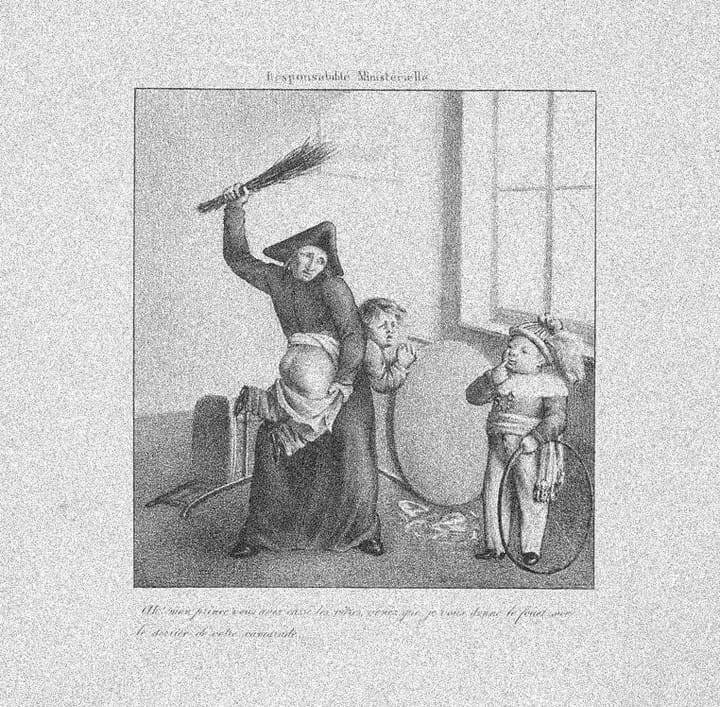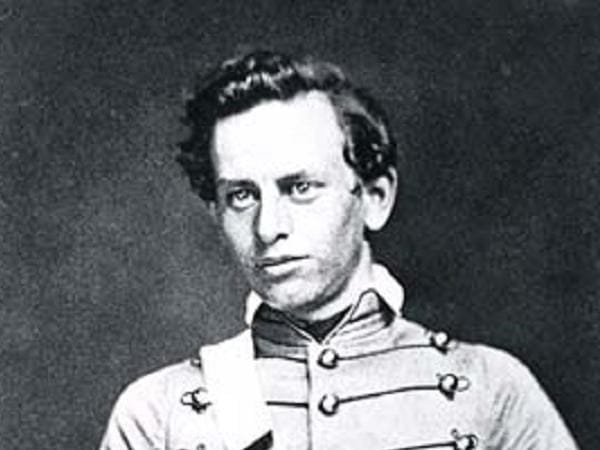Patrolling Class Theory
A new crop of academic critics treat working-class differentiation as a theoretical conclusion rather than as a point of departure. This is a profoundly cynical position that obscures the true sources of defeat: working-class atomization and resignation.

One of the most refreshing aspects of the revival of socialist politics is the uptick in debate and discussion of the concept of class. Throughout the 1980s and 1990s, discussion of class was in retreat and taboo. Politicians accused anyone who even dared to bring it up of “class warfare” and, as Wendy Brown put it in the mid-1990s, academic theory only gave it lip service: “class is invariably named, but rarely theorized or developed in the multiculturalist mantra of ‘race, class, gender, sexuality’.”
Yet, after the political earthquakes of Trump and Brexit, the centrality of class to politics came again to the fore. Debates raged over whether Trump’s support came from the working class or petty bourgeoisie. Even if it might have gotten tiresome, the PMC debates of 2019 were at least about the question of class itself. And, above all, there was a viable presidential candidate who articulated a class struggle politics. As Sanders tweeted in 2019, “If there is going to be class warfare in this country, it's about time the working class won that war.”
But here we are in 2023. The class struggle politics of figures like Sanders and Corbyn revealed themselves as more a mirage of left populism. In their wake, a process of class dealignment between urban and rural and college and non-college educated workers continues unabated. In this new void, a growing chorus of academics are again really worried about all this “class” talk. For these critics, a focus on class is either too narrow, or too general, or not general enough to include the diverse forms of left struggle today (climate, policing, trans rights, etc.). This trend was crystallized in an online panel last month put on by the Seattle-based Marxist conference, “Red May,” simply titled “How Not to talk about Class.”
Attacks on “class reductionism” are not new—and always lurked throughout the upsurge of class-focused politics of the last decade—but what characterizes the new critiques is that they come from those who at least claim the mantle of Marxism. This is a relatively new kind of Marxist, one who has ostensibly rejected the obfuscatory “post-Marxism” of their academic mentors but who retains some of its culturalist analysis and pluralist democratic politics. These new Marxists also share with post-Marxism a common enemy—the shibboleth of “orthodox Marxism” and its class-centered politics. The point is now to acknowledge the importance of class and class politics, but also to patrol and confine its terrain with sophisticated theoretical tools.
Rejecting the Primacy of Class
The most substantial contribution to this debate is an article by Michael McCarthy and Mathieu Desan titled “The Problem of Class Abstractionism” (the latter word being an innovative piece of jargon to avoid the more polarizing concept of “class reductionism”). McCarthy and Desan take their aim at the work of Vivek Chibber and his recent book, The Class Matrix, which argues for the primary explanatory power of structural class relations over culture (even if it surprisingly argues for the primacy of culture in organizing solidarity and collective class power).
Fundamentally, McCarthy and Desan reject the political primacy of class, throwing cold water on the resurgence of class-focused politics post-2016. The argument hinges on the analytical differentiation (with the requisite 2x2 table) between the structural primacy of class and the political primacy of class. Chibber and his ilk subscribe to the cell dubbed “class abstractionism,” which affirms both the structural and political primacy of class.
In McCarthy and Desan’s account, class abstractionists argue that class structure “alone directly govern[s] people’s material well-being” (against other potential factors they deem “nonclass social structures” like citizenship, racial, or gender discrimination), and then simply assume class’s political primacy based on this structural primacy. In the work of theorists like Chibber, they continue, class is conceptualized at an “abstract” level, in the simple terms of capitalist owners of the means of production versus owners of labor power. At such ethereal theoretical heights, class structure yields a homogenizing force capable of producing a collective political formation around the shared experience and material interests of workers.
As an alternative, McCarthy and Desan advocate for what they call “class dynamism,” which affirms the structural primacy of class but rejects its political primacy. However, they also offer a much different understanding of the primacy of class structure. Unlike Chibber’s “abstract” theorization, McCarthy and Desan believe that class structure is uniquely important as an “endogenous mechanism” of competition and social differentiation. Put simply, market forces and technological change tend to divide workers by skill, geography, and countless other identity formations. It is this central role of class in social differentiation that necessitates a more-than-class approach to the conjunctural specificity of political mobilization. In their words,
When workers are organized into unions, parties, or other political associations, they may be mobilized on the basis of a variety of (layered and sometimes contradictory) subjective identifications. They may be interpellated as workers, but rarely are they interpellated exclusively as workers in the abstract. Indeed, at a conjunctural level, they may also be interpellated as families, believers, citizens, immigrants, members of racial groups, members of age cohorts, and so on.
Although McCarthy and Desan categorize “intersectional” approaches in a different cell of their 2x2 table (what they call “class relativism”), their approach shares striking similarities with that of the relativists. Class, in their telling, is simply one “structure” among many, one that does not “alone” determine material well being apart from “nonclass social structures” like racism. Rather than seeing plantation slavery as a specifically racialized class structure, as Barbara Fields does, McCarthy and Desan would presumably understand it as a combination of two intersecting “structures”—planter and slave on the one hand, and white supremacy on the other. Moreover, politics is imagined in their work as essentially conditioned by a set of intersecting “subjective identifications”: workers, citizens, immigrants, etc. It’s easy to see why this kind of argument would land well in academia, with its proliferation of diversity and inclusion discourse (sometimes wielded against workers’ organizing).
This leads to the first major problem with McCarthy and Desan’s argument: their idealist conception of politics. For them, politics is simply a process of mobilizing a diverse set of subjectivities. Throughout the piece, politics is discussed in terms of the “discursive basis for political mobilization” and working through “multiple subjective orientations.” In this telling, a group has achieved the end of politics (rather than arrived at its necessary starting point) simply by mobilizing a diverse set of participants into a larger formation. The question of how such collective amalgamations actually change society is left to the side.
Though they see their article “as a contribution within Marxism”, Marxist politics is about class struggle, not simply mobilizing identities and subjective orientations. More to the point, politics is about amassing and wielding power against the power of capital (and hopefully someday overturning the power of capital entirely). While the subjective aspects of political consciousness are of course important, simply cobbling together subjectivities into a coherent formation in no way guarantees political power. Symptomatically, the authors actually never discuss power as such (the only mentions occur in block quotes from writings by Göran Therborn and Claus Offe and Helmut Wiesenthal).
This leads to the second problem with the piece: it completely misunderstands the Marxist account of class’s political primacy. It is not only that class in a general, analytic sense is primary—“the history of all hitherto existing society is the history of class struggles”—but also that the working class, or the proletariat, has special political importance. This does not follow from any subjective potential of the category “worker”, but rather has to do with the particular form of agency that an organized working class possesses; the objective power of the working class as a class “in itself.”
The working class represents the vast majority of society and has a material interest in challenging the built-in insecurity of capitalist social relations, but more importantly it has an objective power to withhold the labor necessary to keep society running. Put simply, workers have leverage: they can strike, or even threaten to strike, and, as Jane McAlevey constantly argues, “create a crisis,” forcing political systems to respond. McCarthy and Desan only hint at this principle once:
…because the capitalist social order is dependent on the working class—which makes up a majority of the population—in a way that is not true of other social groups, the working class occupies a politically strategic structural location.
Tellingly, however, they never reflect on the political implications: it is the labor movement that is of utmost importance to the political primacy of class from a Marxist perspective. And that’s because the labor movement has most successfully organized working people around material interests despite the heterogeneity of other social facts of life. Yet, for McCarthy and Desan, the labor movement is barely even considered (the word “union” appears twice, “strike” not at all). This is because, again, “politics” is for them simply the subjective convergence of various identities into a “movement.”
Downgrading Workplace Organizing
A more recent contribution comes from William Clare Roberts’s article, “Class in Theory, Class in Practice'', in the journal Crisis & Critique. Clare Roberts explicitly builds off McCarthy and Desan’s structural vs. political primacy and class abstractionism arguments, but his understanding of what constitutes “class” is undeniably much stronger and materialist. Rather than being simply one “structure” among many, Clare Roberts understands the centrality of class in terms of society’s inescapable relationship to production: “Class relations organize production, and, since production is fundamental to the existence of human society, solving the class relation problem is a limiting constraint on everything else that goes on in society.”
Clare Roberts then moves on to make some helpful distinctions between a politics of “work relations” and a broader politics of the proletariat, defined as “the class of people dependent upon wages for life, whether they are working or not.” Certainly any Marxist politics will seek to form a “proletarian” politics that organizes the material interests of this vast class against the power of capital.
But here is where it goes off the rails. In contrast to McCarthy and Desan, who simply don’t mention the centrality of labor and workplace organizing, Clare Roberts hinges his whole argument on demoting its importance. He insists that a truly proletarian class politics is about “the possibility of taking over production and producing otherwise”, whereas workplace organizing can only be narrow in scope. In particular, he takes aim at Chibber’s claim that working-class power comes from their capacity to withdraw their labor through strikes:
It is absurd for Chibber to maintain that the proletariat has the “ability to crash the entire system, just by refusing to work.” Organized refusal to work has only ever won concessions from or provoked confrontations with bosses and the state, and it will never be able to do more than that. It is impossible for a refusal to work to “crash the system” for the simple reason that workers have to eat in order to be in a position to make a revolution, and food will not produce itself.
This is followed by a Marx quote affirming that a nation that “ceases to work” will “perish.” If the point is simply that strikes have not led to socialism, true enough, but one wonders why this would need to be stated. But if the point is that the concessions from bosses and the state are dead ends, that they could never be weigh stations on the way to broader transformational gains, does this then mean that the Left should abandon the unions? When the West Virginia teachers went on strike for two weeks and won their political demands in a right-wing state, is our response supposed to be, “You will never do more than that”?
Clare Roberts thus lands on the argument that we should downgrade the power of strikes in building the political power of the working class. This not only goes against the classics, but also trivializes the work of organizations like Labor Notes and thinkers like Jane McAlevey and Joe Burns, who argue that the key to rebuilding working-class power is resurrecting workers’ capacity to strike (a capacity that has dropped off a cliff since the early 1980s).
More broadly, it begs belief that in a period where workplace organizing is on the rise from Starbucks to Amazon, and a UPS workforce of 350,000 that moves 6% of US GDP might go on strike this summer, an academic Marxist in 2023 thinks it important to downgrade workplace organizing and strikes as not properly proletarian class politics.
In the end, Clare Roberts ends up in a similar analytical place as McCarthy and Desan. They both believe that what these class abstractionists don’t understand is that the working class is divided: “The only fair reading of the situation is that the working class is divided against itself, and that these mutually opposed fractions of the proletariat have allied themselves—politically and culturally—with different fractions of the capitalist class.” The new academic critics of class take working-class differentiation as a profound theoretical conclusion as opposed to a political problem to be overcome through organizing.
The need to emphasize the collective forces of division within the working class—racism, sexism, nationalism, and more—ignores what is perhaps Chibber’s most powerful argument. For him, the main barrier to working class organization—especially in the neoliberal era of working-class defeat—is not so much these divisive forces, but rather widespread atomization and the resignation of workers; a disbelief in the capacity of politics or collective organization to do anything to improve their lot. Given the comprehensive colonization of the political field by capital, it’s hard to blame them.
While understanding the difficulty and complexity of working-class differentiation, Marxists traditionally start from the premise that the working class has shared material interests rooted in the common experience of exploitation and material insecurity that needs to be brought forth through organizing work. McCarthy and Desan think this basic position is too rooted in an “abstract” notion of class (the employment relation). Clare Roberts similarly rejects the notion that “the working class has a broadly unified set of interests.”
This rejection of the idea of shared material interests flies in the face of the evidence. In another recent attempt to clarify what constitutes class politics, Dylan Riley and Robert Brenner estimate that the percentage of the U.S. dependent upon wage income composes 79% of households. Combine this with common estimates that 62% of Americans “live paycheck to paycheck” and you discover a generalized level of economic insecurity that afflicts a huge proportion of society. This is why it seems reasonable for socialists to organize around “broad economic redistribution that provides a modicum of personal security for the whole of society.” Such an organizing approach is rooted in the fact that a broad working-class majority—notwithstanding its many divisions—has a shared interest in such redistribution.
Of course, simply saying that the working class has shared material interests does not solve the problem of collective organization of those interests into political formations. Here perhaps is where McCarthy and Desan would agree with Chibber’s argument that it is “cultures of solidarity” that are actually required to build class consciousness, or to build a class “for itself.” On this point, McCarthy/Desan, Clare Roberts, and Chibber would all agree that the “orthodox Marxist” view of the “natural” development of class consciousness has not been born out by history. The key difference is that Chibber believes relations of solidarity must be anchored by class organization and demands that aim to measurably improve participants' material circumstances.
Without some conception of shared material interests, we risk a politics that collapses into an untethered culturalism. As Ellen Meiksins Wood argued stridently in the 1980s amid the turn toward culture and discourse in the academy, “If the proposition that ‘interests’ do not exist independently of their modes of representation [is true]…we are in the realm of absolute idealism, where nothing exists but Idea.”
Class politics is ultimately a simple politics: organize around shared interests against our common enemies in the capitalist class. Reinforcing the differentiation within the working class as if it is intractable not only is a gift to that capitalist class (which thrives on our divisions), but also ultimately leads to disorganization and confusion about where to direct our political efforts. If we follow the patrollers of class theory, we arrive at a mode of theorizing that is at its core uninterested in politics as such. Those of us interested in truly reviving working-class power should look elsewhere for advice on how to or how not to talk about class.
■
Matt Huber is a professor in the Department of Geography and the Environment at Syracuse University. He is the author of Climate Change as Class War: Building Socialism on a Warming Planet.



